One Night of Love

Brief Synopsis
Cast & Crew
Victor Schertzinger
Grace Moore
Tullio Carminati
Lyle Talbot
Mona Barrie
Jessie Ralph
Film Details
Technical Specs

Synopsis
After auditioning for a radio part, singer Mary Barrett informs her parents that she is leaving New York City to study music in Milan, Italy. Mary gets a job at the Cafe Roma, where the eminent Giulio Monteverdi hears her sing. Giulio promises to make Mary a star if she will allow him to control her life and mold her, but without the possibility of romance. Soon, Mary is ready for a tour of provincial opera houses, and Giulio helps her to overcome stagefright. After several years, Mary begins to tire of Giulio's dominance and discipline. In Vienna, Mary and Giulio meet one of his old pupils, Lally, who angered Guilio when she tried to engage him in a romance. Mary becomes jealous and pretends to have laryngitis, and Giulio goes to a different hotel. Mary believes Guilio has gone to Lally, and so visits Bill Houston, a longtime friend who has proposed marriage. After a day of throwing fruit at her posters, Mary decides not to sing that night. To persuade her to go on, Giulio first claims that Lally will take her place and then proposes to her. Mary's performance of "La Barrett" from Bizet's Carmen wins her an invitation to the Metropolitan Opera, but Giulio insists she is not ready. Bill then leaves for New York, and tells Mary he does not belong to her kind. Upon returning to a dinner that Giulio has prepared for Mary, Lally lies to Mary, saying that she is still involved with the impresario. On the night of her debut in Madame Butterfly , Mary is too nervous to go on stage, until she sees Giulio in his usual place in the prompter's box. A friend has told Mary of Lally's escapade, but she had been too proud to call Giulio on her own.

Director

Victor Schertzinger
Cast

Grace Moore
Tullio Carminati
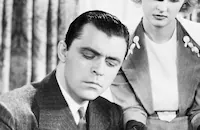
Lyle Talbot

Mona Barrie

Jessie Ralph
Luis Alberni
Andrés De Segurola
Rosemary Glosz
Nydia Westman
Frederick Burton
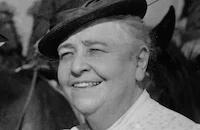
Jane Darwell
William Burress
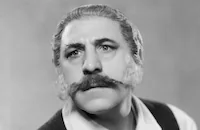
Henry Armetta
Sam Hayes
Reginald Barlow
Fredrik Vogeding
Arno Johnson
Olaf Hytten
Leo White
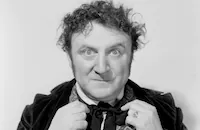
Herman Bing
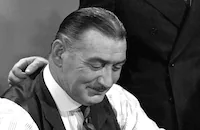
Edward Keane
Reginald Le Borg
Paul Ellis
Joe Mack
Marion Lessing
Helen Morris
Hans Joby
Victoria Stuart
John Ardizoni
Harry Schultz
Hans Schumm
A. R. Haysel
Frank Anger
Mario Dominici
Harriet Lorraine
Margaret Morgan
H. N. Clayton
Alex Schoenberg
Wadsworth Harris
Enrique Acosta
Henry Fauk
Walter Thiele
Spec O'donnell
Robert "buddy" Shaw
Kurt Von Fuerberg
John P. Lockney
Michael Mark
Bert Sprotte
Richard La Marr
Marcia Lee
Arthur Stuart Hull
Isabelle Lamal
Ethel Sykes

Wilfred Lucas
Edmund Burns
Rafael Storm
Bruce Warren
Andre Cheron
George Jackson
Alphonse Martell
Eric Mayne
Sergei Arno
George Nardelli
Elise Schuyler
Beth Holt
Nita Pike
Symona Boniface
Florence Dudley
Byron Munson
Myrta Bonillas
Philip Sleeman
Albano Valerio
Dina Smirnova
Chris Mario Meeker
Adolph Faylauer
Peggy Leon
Kathryn Winner
Edward Reinach
Herta Reinach
Hans Von Morhart
Glen Cavender
Conrad Seidemann
Baron Von Hesse
Dutch Hendrian
Ralph Hornbrook
Fred Keck
Crew
Roy Babbitt
Alexandre Bizet
Arthur Black
George Brown
Dr. Pietro Cimini
Harry Cohn
Nell Cook
Gaetano Donizetti
William Edmondson
Giuseppe Giacosa
Stephen Goosson
James Gow
George Hager
Ludovic Halévy
John Hoffman
Luigi Illica
Amron Isle
Gus Kahn
Robert Kalloch
Ed Kearns
George Kelly
S. K. Lauren
John L. Lindsey
Jimmy Lloyd
Henri Meilhac
Gene Milford
Paul Neal
Edmund North
A. Pestalozza
Francesco Maria Piave
Giacomo Puccini
Everett Riskin
Adolph Schafer
Victor Schertzinger
Victor Scheurich
Louis Silvers
Rudolph Thaler
Giuseppe Verdi
Joseph Walker
Jack Wrenn

Videos
Movie Clip
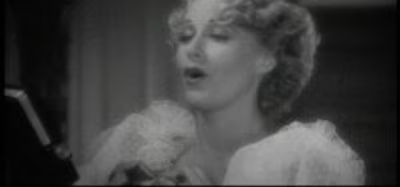

Film Details
Technical Specs

Award Wins
Best Score
Best Sound
Award Nominations
Best Actress
Best Director
Best Editing
Best Picture
Articles
One Night of Love
"Harry Cohn had been in the opening night audience when Grace Moore starred on Broadway in The DuBarry, a musical that helped restore her fame. After the show closed its successful run, she returned to California for an appearance at the Hollywood Bowl. Edmund Goulding, the director, gave a party in her honor and among the guests was Harry Cohn. "How would you like to make a picture over at Columbia?" he asked. "Why don't you come to see me tomorrow at eleven?" Miss Moore agreed, but she overslept the following morning. The telephone aroused her. "Where the hell are you?" demanded Harry Cohn. "You're supposed to be in my office." She hurried to Columbia Studios, and Cohn offered her a contract for $25,000 per film. She said she would consider it." Moore really wanted to return in triumph to MGM and she knew that Maurice Chevalier wanted her to costar with him in The Merry Widow (1934). She wanted it bad enough to offer to make the film for nothing, she told MGM. But Irving Thalberg said she was overweight and wouldn't photograph well. Jeanette MacDonald got the role instead and Grace Moore signed with Columbia.
The problems started almost at once. Cohn couldn't find the right vehicle for her. Thomas noted, "[Harry's] Brother Jack and other powers of the East declared it would be madness to attempt a film with operatic music; it would never get playing time in the sticks. Columbia's chief negotiator in uneasy situations, Sam Briskin, was directed to get the company out of the contract. He summoned Miss Moore and told her the deal was off; Columbia would buy out her contract. She responded with what was to be recognized as the Moore style. She screamed her refusal and stalked out of the office, slamming the door hard enough to shatter the glass."
Forced to find something for Moore to do, Cohn assigned Everett Riskin to be producer. "The new producer went to work on a romantic story about an American girl who studied opera in Italy under a stern taskmaster and finally achieved success at the Metropolitan. It was a fluffy tale, but Riskin calculated that it might be supported by Miss Moore's ebullience and her renditions of familiar arias. She had her own notions about what she wanted to sing, and she worked her persuasion on Cohn. "Harry, darling, I must sing Butterfly," she urged. "That old thing? You really want it?" said Cohn. "Yes-please." "The former song plugger buzzed the head of the music department on the intercom. "Find out how much they want for Poor Butterfly, he ordered. "No, no," corrected Miss Moore. "I mean the Butterfly by Puccini."
The music for the film, now called One Night of Love [1934], included arias from Carmen, and Ciribiribin, (which would become her theme song), and Un Bel Di from Madame Butterfly. The latter gave the studio headaches as Moore had trouble hitting the high notes. Typically, she flew into a rage and blamed the orchestra and flounced off to her dressing room. When the conductor went to Cohn's office, he asked "Is she at fault or are you?" Stoloff replied "There's nothing wrong with the orchestra. These are the original Puccini orchestrations." Cohn told him to tell Moore that either she went back to the recording stage or she would be responsible for paying the day's salary for the entire orchestra. Not surprisingly, Moore returned and recorded the song.
The final costs for One Night of Love reached $200,000 and Cohn was not confident that it would be successful. But after previews in Glendale (a suburb of Los Angeles) and Santa Barbara were fairly successful, he took Moore and her husband to the Hollywood preview. He was astonished "as the audience interrupted the film with applause and shouts of delight. The ending signaled a thunderous ovation and Cohn recognized his vindication over the taunts of the East. So great was his elation that he bent down to plant a kiss on Miss Moore's cheek. In the confusion he missed her and kissed her husband instead. "My God," he worried afterward, "this will ruin my reputation as a he-Man."
The film was a hit, Grace Moore received an Academy Award nomination for Best Actress, and One Night of Love was nominated for Best Picture, Best Director and won for recording and score. Cohn was right: the film wouldn't play in small towns but as Thomas wrote, "it was the first Columbia film to wind important bookings in the powerful Loews chain of theaters, and that was a milestone in Columbia's progress."
Producer: Everett Riskin, Harry Cohn
Director: Victor Schertzinger
Screenplay: Charles Beahan (story), Dorothy Speare (story), James Gow, S.K. Lauren, Edmund H. North
Cinematography: Joseph Walker
Film Editing: Gene Milford
Art Direction: Stephen Goosson
Music: Alfred Newman, Victor Schertzinger, Louis Silvers
Cast: Grace Moore (Mary Barrett), Tullio Carminati (Giulio Monteverdi), Lyle Talbot (Bill Houston), Mona Barrie (Lally), Jessie Ralph (Angelina), Luis Alberni (Monteverdi's Assistant).
BW-83m.
by Lorraine LoBianco
Sources:
King Cohn: The Life and Times of Harry Cohn by Bob Thomas
Magill's Survey of Cinema edited by Frank N. Magill
The Internet Movie Database

One Night of Love
Quotes
Trivia
Notes
According to International Photographer, the complete proscenium and part of the wings and seating plan of the Metropolitan Opera House were duplicated for this production and occupied the whole of Columbia's largest stage. According to a Film Daily news item, associate producer Everett Riskin's name could not appear on the screen credits because of an inflexible studio rule. Also according to Film Daily, One Night of Love had its premiere at the Music Hall in New York. In this picture, Metropolitan Opera soprano Grace Moore made her first onscreen appearance after a three-year absence. She made her first two films for M-G-M in the early 1930s. One Night of Love was selected as one of the ten best pictures of 1934 by Film Daily's poll of critics, and it was a "box office champion" during 1934 according to the 1935-36 Motion Picture Almanac. The movie was nominated for four Academy Awards: Victor Schertzinger for Best Directing, Paul Neal for Best Sound Recording, Gene Milford for Best Editing and the Columbia Studio Music Department for Best Score. Awards were received by Neal and the Music Department. In addition to these two awards, the film received a special "scientific or technical" award, Class III, for the studio's recording of the picture's sound and the "application of the vertical cut disc method (hill and dale recording) to actual studio production." In a filmography in the biographical film on Edgar G. Ulmer at the AMPAS Library, he is listed as a writer of this film.














